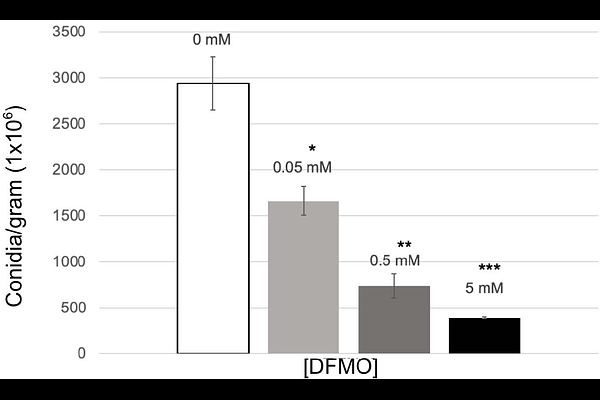Chemical inhibition of asexual development leads to increased ultimate tensile strength in mycelial material.

Chemical inhibition of asexual development leads to increased ultimate tensile strength in mycelial material.
Gray, K.; Edwards, H.; Doan, A. G.; Huso, W.; Lee, J.; Folmer, E.; Lawrence, O.; Marten, M. R.; Harris, S. D.
AbstractThis study investigates the chemical inhibition of asexual development in Aspergillus nidulans to enhance the mechanical properties of mycelial materials. We hypothesized that suppressing conidiation using the ornithine decarboxylase inhibitor -difluoromethylornithine (DFMO) would increase material strength by inhibiting asexual development, promoting denser hyphal packing. Mycelial materials were grown in DFMO concentrations (0, 0.05, 0.5, and 5 mM), and conidiation and ultimate tensile strength (UTS) were measured. Results showed a dose-dependent reduction in conidiation, with significant decreases at all DFMO levels (P [≤] 0.05). While lower DFMO concentrations (0.05 and 0.5 mM) did not significantly alter UTS, 5 mM DFMO treatment doubled the material\'s tensile strength compared to controls (P [≤] 0.05). Scanning electron microscopy confirmed reduced developmental structures in DFMO-treated samples, supporting the hypothesis. The non-linear relationship between conidiation suppression and strength improvement suggests additional mechanisms, such as hyphal morphology or cell wall changes, may contribute. These findings demonstrate that chemical modulation of fungal development can rationally tune mycelial material properties, offering a systematic approach for biomaterial engineering.